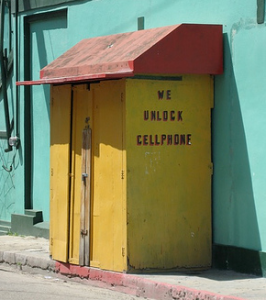After Today, You’ll Need Your Wireless Provider’s Permission To Unlock New Cellphones
In 2006 (and reaffirmed in 2010), the Librarian of Congress, who not only tells all the lawmakers to be quiet and not bring snacks into the reading room but also interprets how the Digital Millennium Copyright Act should be applied, had allowed for cellphone users to unlock their devices without seeking the permission of their wireless provider.
And then in October, the Librarian changed his mind.
In spite of pleadings from groups, including Consumers Union, that the ability to unlock cellphones allowed for consumers to more easily switch between carriers, thus encouraging competition and market flexibility, the Librarian chose instead to listen to the CTIA—The Wireless Association, which claimed that “the largest nationwide carriers… have liberal, publicly available unlocking policies,” and unlocked phones are “freely available from third party providers—many at low prices.”
The Librarian also cited a 2010 ruling in which it was determined that purchasers of software do not actually own the programs, but instead are merely licensing it as per the terms of the End User License Agreement.
Thus, declared the Librarian:
The Register further concluded that the record before her supported a finding that, with respect to new wireless handsets, there are ample alternatives to circumvention. That is, the marketplace has evolved such that there is now a wide array of unlocked phone options available to consumers. While it is true that not every wireless device is available unlocked, and wireless carriers’ unlocking polices are not free from all restrictions, the record clearly demonstrates that there is a wide range of alternatives from which consumers may choose in order to obtain an unlocked wireless phone. Thus, the Register determined that with respect to newly purchased phones, proponents had not satisfied their burden of showing adverse effects related to a technological protection measure.
However, with respect to “legacy” phones—i.e., used (or perhaps unused) phones previously purchased or otherwise acquired by a consumer—the record pointed to a different conclusion. The record demonstrated that there is significant consumer interest in and demand for using legacy phones on carriers other than the one that originally sold the phone to the consumer. It also supported a finding that owners of legacy phones—especially phones that have not been used on any wireless network for some period of time—may have difficulty obtaining unlocking codes from wireless carriers, in part because an older or expired contract might not require the carrier to cooperate…
The Register concluded after a review of the statutory factors that an exemption to the prohibition on circumvention of mobile phone computer programs to permit users to unlock “legacy” phones is both warranted and unlikely to harm the market for such programs. At the same time, in light of carriers’ current unlocking policies and the ready availability of new unlocked phones in the marketplace, the record did not support an exemption for newly purchased phones. Looking to precedents in copyright law, the Register recommended that the class designated by the Librarian include a 90-day transitional period to allow unlocking by those who may acquire phones shortly after the new exemption goes into effect.
So what that all means is that, if you have a cellphone right now, you can still unlock it at your leisure and not be breaking the law. But any phone purchased after tomorrow will need to be done so with the permission of your wireless carrier.
As the folks at TechNewsDaily have pointed out, there are options for purchasing unlocked phones, though they often cost significantly more than the phones you would purchase through your carrier.
TechBlog’s Dwight Silverman notes that, like every other issue today, a petition on the White House website asking for the administration to review this rule change.
Want more consumer news? Visit our parent organization, Consumer Reports, for the latest on scams, recalls, and other consumer issues.


